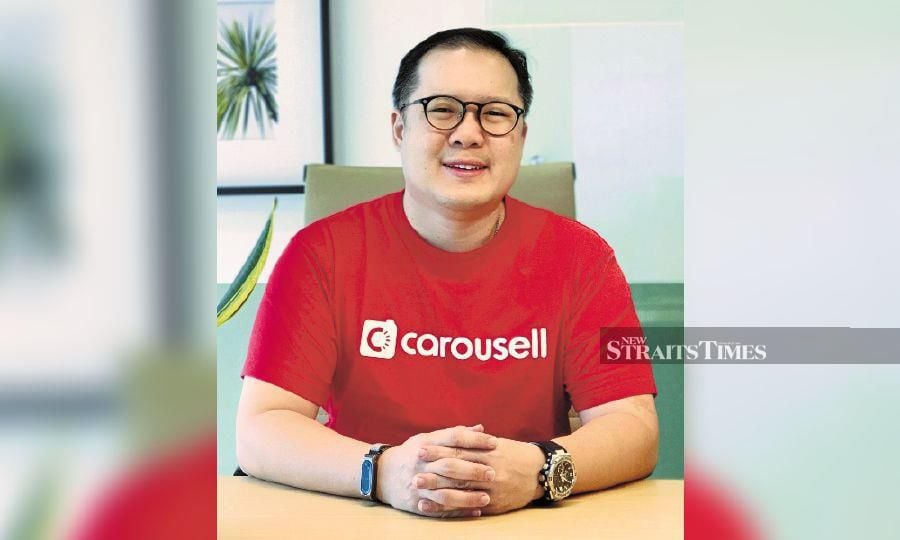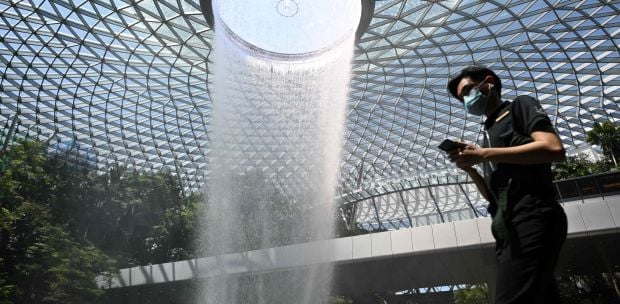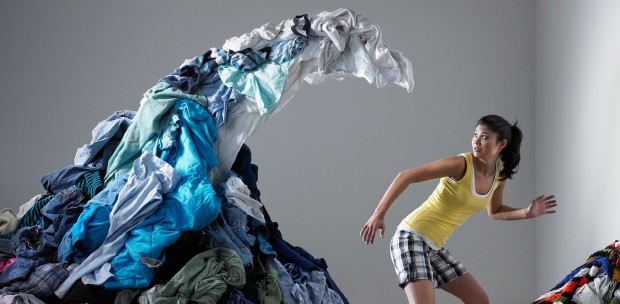A good friend tells me he feels uneasy slipping into shirts or pants once worn by another soul.
But numerous others do not think it is queer. Resold clothing generated about US$15 billion in 2021, and US$21 billion was spent on garments from charity and thrift shops, says The Economist newspaper.
And the fact is, preloved clothes are gaining in popularity in Malaysia. That's what Tang Siew Wai tells the NST.
The country head (Malaysia) of Carousell, a classifieds marketplace, says fashion is a hot ticket. This is remarkable considering the stigma attached to secondhand items, especially in Asian culture where it might be seen as taboo.
"In our Carousell Recommerce Index Report, we found that the top-searched fashion items in 2020 were men's tops (Carousell) and blazers (Mudah.my). In terms of searches for women's fashion, there are more than half a million in that category in any given month."
He speaks of an 82 per cent year-on-year growth in secondhand fashion-related categories from 2020 to 2021.
So the market is expanding rapidly. But fraudulent products and scams pose a challenge in that they could deter consumers from even dipping their toes into the market.
On March 3, The Straits Times of Singapore reported that 72 people had fallen victim to a phishing scam on Carousell since January, losing more than S$109,000. The company is working closely with the police and has suspended buyers' fraudulent accounts.
I myself had a lousy experience. I bought a book online (not on Carousell) and found a good 10 to 20 pages stained and torn. And I've heard other unpleasant accounts of buying secondhand stuff online.
Tang says Carousell has taken many measures "to build a safe and conducive environment for people to buy and sell online". More content moderators, more engineers, more AI, among other things. It sounds impressive.
I am especially taken by InstantBuy, which is running in Singapore. Sellers are curated from various categories, including mobile phones, designer bags and popular fashion labels.
I am told buyers can interact with these verified sellers, "knowing that all the listings are quality-assured".
This will help, but there's a long way to go before buying secondhand becomes the default choice. Tang admits as much, saying "we still need to see more people embracing the cause… to see a difference being made".
Now, if we ourselves want to be part of the movement that makes a difference, that cuts down on waste, perhaps we should re-examine our uneasiness about slipping into a shirt or pants once worn by others.
i. Click here to read why many people think buying second-hand goods does not make sense
ii. Click here to read about a man who heals shoes and is a fan of Jimmy Choo
iii. Click here to read about a 25-year-old entrepreneur who believes in secondhand furniture






